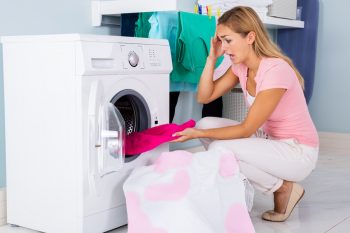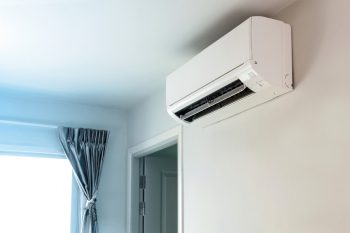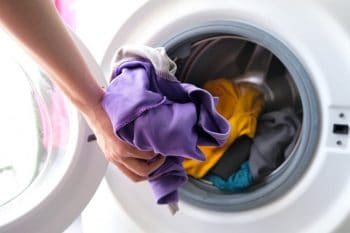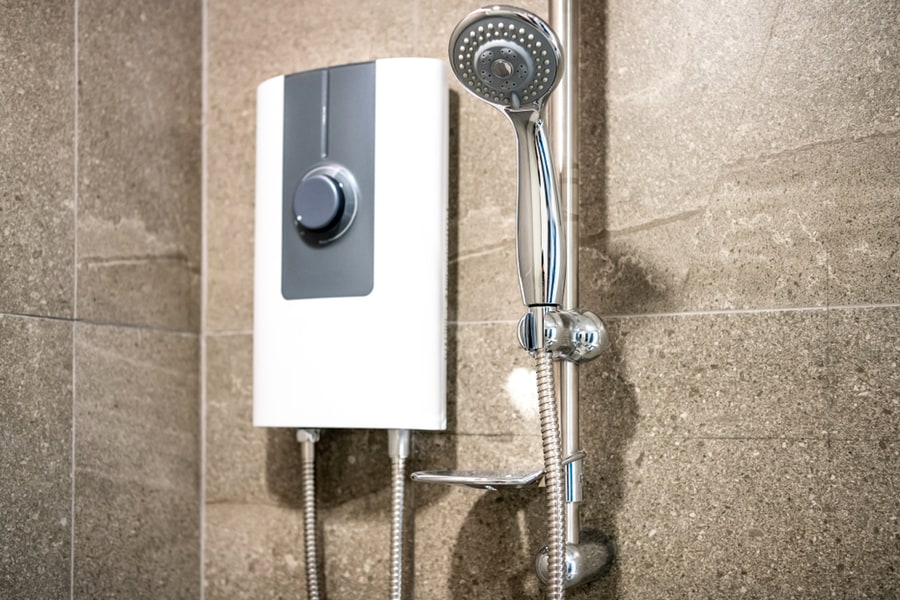
The tankless water heater, called the demand-type or instantaneous water heater, is a device that heats water without requiring a storage tank, unlike traditional water heaters.
These water heaters are becoming increasingly popular due to their energy efficiency, space-saving design, ease of installation, and durability.
If you’re considering upgrading or installing a tankless water heater, one concern you may have is its durability.
The straightforward answer is that a tankless water heater can last 12-30 years. However, this depends on the maintenance level and the device’s quality.
- Tankless water heaters can last 20 years or more with proper care and maintenance.
- Their durability is dependent on the quality of the material of the water heater’s heat exchange unit, the quality of water, and the level of care and maintenance.
- Consider descaling and flashing your tankless water heater once or twice a year and treating hard water to ensure it lives up to or outlives its approximate lifespan.
- Cleaning or changing the water heater’s air and inlet filters also goes a long way in ensuring the durability of your water heater.
Read on as we discuss these concepts in detail.
This article discusses the basics of what tankless water heaters are and their average life expectancy. Then, we’ll tell you the factors determining the lifespan and provide tips to make your appliance last longer.
What Is a Tankless Water Heater?
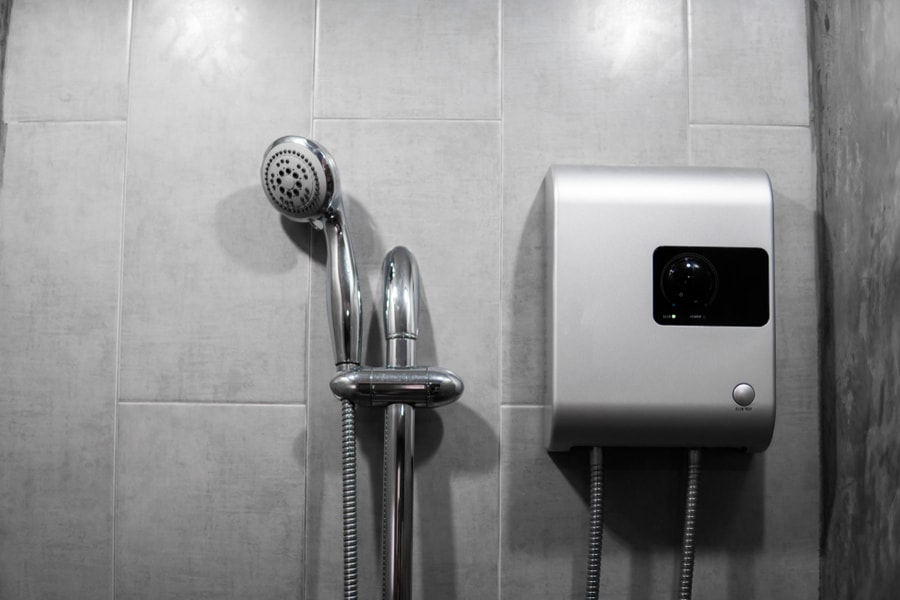
As the introduction mentioned, tankless water heaters do not require a storage tank. Instead, they provide hot water instantaneously hence the name on-demand or instantaneous water heaters.
Cold water runs through the heat exchanger and gets heated. When you turn on the hot water faucet, it is heated using electricity or gas.
Tankless water heaters provide a hot water supply that lasts as long as the tap is on. However, the flow rate is significantly limited when using a tankless water heater, with gas-powered models having higher flow rates than electric-powered ones.
This means that you may not be able to get sufficient hot water for multiple uses simultaneously, such as running a dishwasher and showering. Therefore, installing a tankless water heater with enough capacity to handle your household’s needs is important.
Alternatively, you can install two or more tankless water heaters to serve different appliances, but doing this would add to your energy bills.
Factors That Determine a Tankless Water Heater’s Lifespan
Ideally, a tankless water heater can last for up to 20 years or more. This is almost twice as long as a conventional water heater with a tank can last.
Tankless water heaters last longer than traditional water heaters because they don’t have a storage tank, and therefore there is less surface area for corrosion and sediment build-up.
However, this life expectancy is dependent on the following factors:
1. The Tankless Water Heater’s Quality

The quality of the heat exchanger that your tankless water heater has greatly determines its longevity.
For instance, a copper tankless heat exchanger has an approximate lifespan of 12-15 years, while a stainless steel heat exchanger has a lifespan of 15 to 25 years.
However, you can increase these lifespans by ensuring annual device maintenance and treating hard water.
2. Care and Maintenance

Essentially, a tankless water heater requires less care and maintenance than a traditional one. It only requires maintenance servicing at least once a year and twice if you have hard water.
The objective of servicing a tankless water heater is to identify and fix malfunctions promptly and remove any mineral build-up from the heater’s internal components.
Also, during the maintenance, the plumber cleans or replaces the heater’s external components, including the filters, flame, ignition rods, new intake valve, and fan motor. The technician also attends to the tankless heater’s rust, leakages, and dust accumulation.
Additionally, they inspect the gas and manifold to ensure they’re at stable pressures and working correctly.
It is crucial to schedule maintenance for your tankless water heater, even if there are no signs of malfunction. This helps avoid expensive repairs that result from severe damage.
It also helps keep the heater in excellent condition, thus extending its useful life.
3. Water Quality

Tankless water heaters used in households with hard water will likely last a shorter period than those with fresh water.
Hard water can reduce an appliance’s lifespan by two years or more. This is because hard water has a higher mineral content that can accumulate in the internal elements of the heater, making it difficult for water to travel through the path to the heat exchanger.
To prevent premature damage to your tankless water heater, consider treating your water if you live in an area with hard water.
How To Prolong the Lifespan of a Tankless Water Heater
Installing a tankless water heater is an investment, given that one unit costs anywhere between $170 to $2,300.
Consider doing the following to keep your tankless water heater in excellent condition so you get a long useful lifespan from it.
1. Descale/ Flush Your Heater Regularly
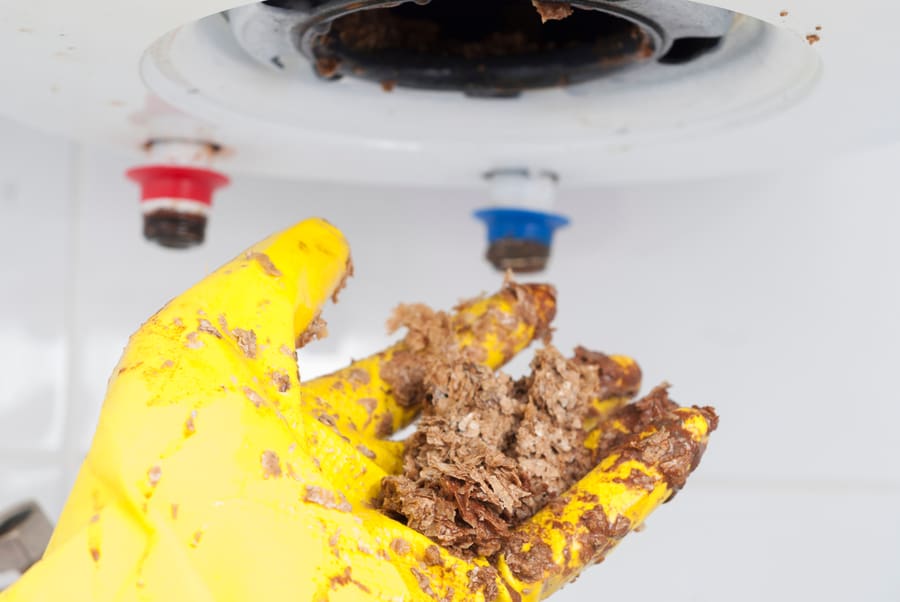
Water contains minerals, such as calcium and magnesium, that tend to remain deposited on the parts of a tankless water heater.
Even with an inline water filter, minerals remain inside the tankless system. If you have hard water, the situation tends to be worse.
Descaling refers to dislodging these mineral deposits build-up from the interior elements of your tankless water heater. Conversely, flashing refers to running clean water under pressure through the system to remove the limescale.
Most tankless water heater manufacturers advise that you descale and flush the device at least once and twice a year if you have hard water.
While you can hire a plumber to descale and flush your tankless water heater, it’s a manageable task you can perform within an hour. Consider the following steps when descaling and flashing your tankless water heater.
- 4 or 5 gallons of white vinegar
- 5-gallon bucket
- Small sump pump
- Two 3/4-inch garden hoses
- Adjustable wrench
- Turn off the power supply to your water heater, whether electric or gas-powered. Sometimes you may have to turn off the main circuit breaker of the building to ensure that there’s no power flowing through the unit’s wiring.
- Turn off the cold water and hot water supply valves.
- Place a bucket underneath the tankless water heater.
- Connect one end of a garden hose to the inlet/cold-water isolation valve and the other to the sump pump outlet, and place the end with the pump into a bucket.
- Connect one end of a second garden hose to the outlet/ hot-water isolation valve and put the other into the same bucket where you placed the pump.
- Consider using an adjustable wrench to fasten the garden hose couplers.
- Fill the bucket with white vinegar and open the inlet and outlet valves of the heater.
- Turn on the pump in the bucket to circulate the vinegar through the heater’s system for about 45 minutes.
- Turn off the pump and allow the vinegar to drain from the water heater into the bucket through the hoses.
- Dispose of the vinegar and close the inlet/ cold-water isolation valve.
- Place the open-ended hose into the empty bucket, enabling the cold water supply valve. Next, rinse the heater by letting cold water run through the hoses into the bucket for about five minutes, then turn off the cold water supply.
- Disconnect the hoses and turn off the outlet valve. Then, remove, clean, or replace the inlet filter screen per the manufacturer’s instruction manual.
- Turn on the outlet valve and then the inlet valve, and open several hot water faucets in the house to remove any trapped air in the system.
- Turn on the power supply to your tankless water heater and test whether the system works as it should.
2. Treat Hard Water
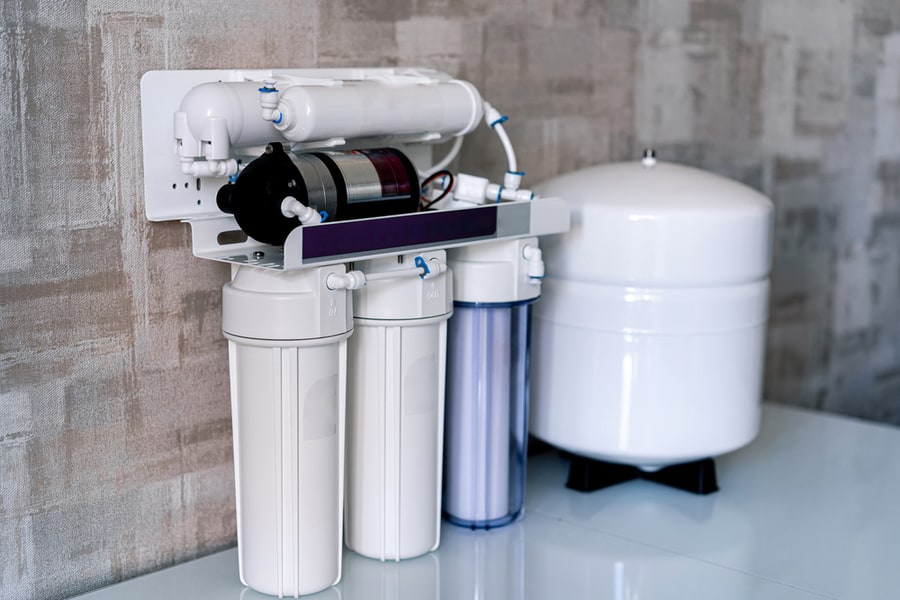
As mentioned earlier in this article, hard water can significantly reduce the lifespan of your tankless water heater. In addition, the build-up of mineral deposits on your unit leads to fluctuating water temperature and higher energy bills.
Essentially, the build-up is insulation between the heat exchanger and the water, reducing efficiency as it uses more power or gas to heat the water.
If you live in a place with hard water, consider water filtration options to extend the durability of your device.
3. Replace or Clean the Air Filter
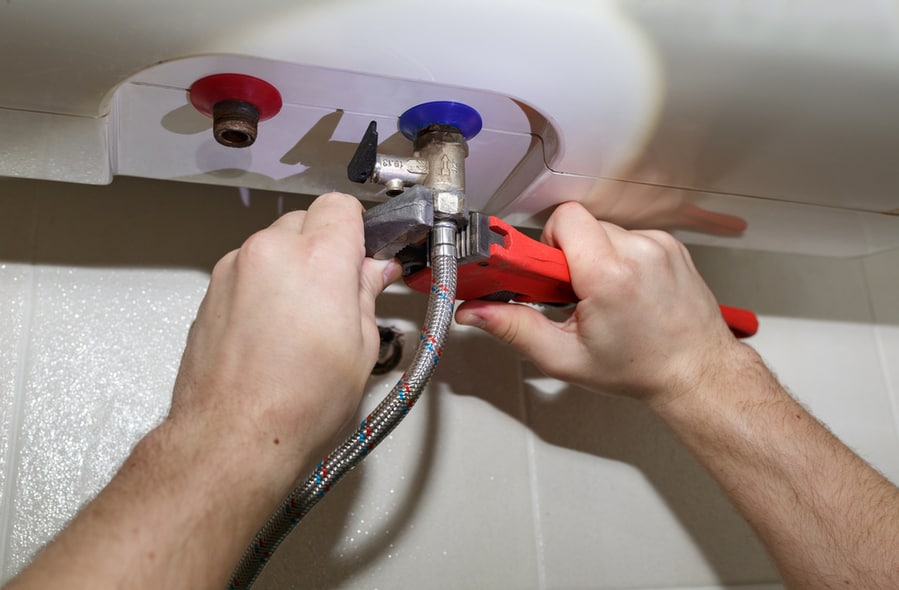
If you have a gas-powered tankless water heater, it has an air filter between the fan and the air intake pipe. This filter may accumulate dust and dirt over time, obstructing the free flow of air and leading to electrical issues or error codes on your system.
It is best to remove and clean or replace the air filter as the tankless heater manufacturer recommends in the user guide.
This will help prevent possible damage to your unit.
4. Regularly Clean or Replace the Water Line Filter
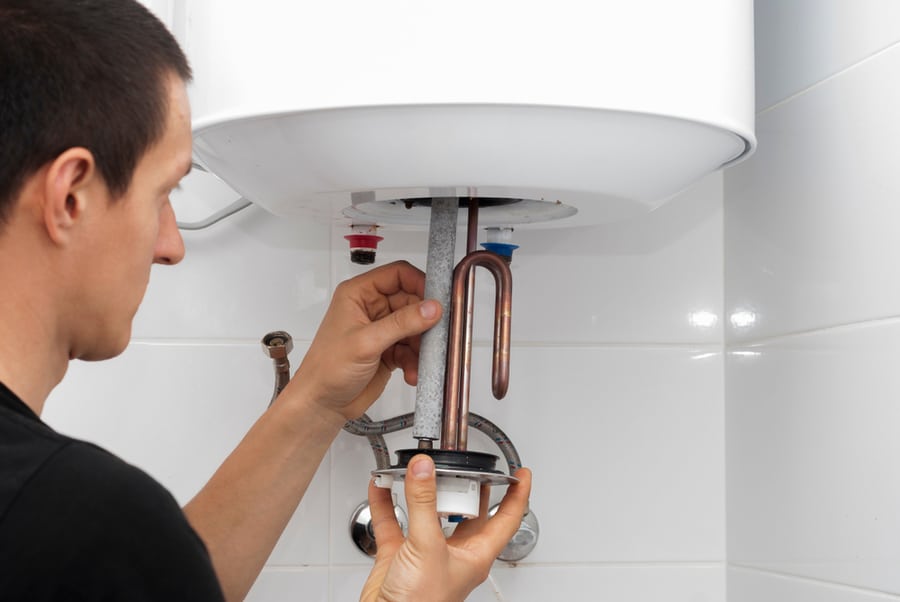
Most tankless water heaters have an inlet water line filter which protects the appliance from sediments and hard water.
If not removed, dirt sediments and mineral build-up can affect the water heater’s efficiency and pass on to other plumbing elements, including faucets and pipes. They may even get to your appliances and cause more damage.
It is best to clean or replace the heater’s inlet filter per the manufacturer’s instructions to help protect your tankless water heater, plumbing, and appliances from damage.
Conclusion
Installing a tankless water heater is a worthwhile long-term investment for your home. It can last for 20 years or above, but you must schedule at least an annual maintenance of the unit where you descale and flash the heater and change or clean the air and inlet filters.
Also, consider treating your water to extend your heater’s lifespan if you live in an area with hard water.
Frequently Asked Questions
Why Do Tankless Water Heaters Last Longer Than Traditional Ones?
Tankless water heaters last longer than traditional water heaters because they don’t have a storage tank, and therefore there is less surface area for corrosion and sediment build-up.
Corrosion and sediment build-up is among the leading causes of water heater damage.
What Factors Can Reduce the Lifespan of a Tankless Water Heater?
A tankless water heater can last for over 20 years.
However, investing in a poor-quality tankless water heater, using hard water, and lack of proper maintenance can significantly reduce its lifespan.
What Can You Do To Make Your Tankless Water Heater Last Longer?
To extend your water heater’s useful life, consider descaling and flashing it at least once or twice a year, treating hard water, and changing or cleaning the air and inlet filters.


